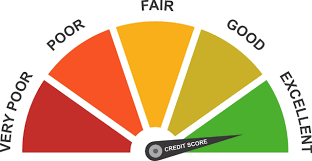
It is a process that refers to an agreement between the lender and the borrower to settle their loan by just paying a part of the original outstanding amount.
How Does Loan Settlement Work?
Loan settlement processes can vary between lenders. The amount to settle a loan is decided by the lender and depends on factors like the loan amount and how much the borrower has already paid. Different borrowers might get different settlement offers based on the negotiation.
If a borrower has genuine reasons for not repaying, the lender might agree to reduce the loan amount to help with the settlement. But usually, the borrower has to pay the settlement amount all at once, not in installments. Sometimes, the lender may also give the borrower a break from making payments for a certain period. Even after settling the loan, it might still show as ‘settled’ instead of ‘closed’ in the lender’s records.
The process of loan settlement can be approached in two ways :
a) Firstly, individuals can navigate it independently, handling everything from creditor calls to the final settlement, although this can lead to considerable stress.
b) Alternatively, there is the option of engaging debt settlement companies, which manage the entire process on behalf of the debtor, from negotiations with the banks to closing the account.
Benefits of Loan Settlement :
Negotiated Amount: Opting for loan settlement may result in settling the debt for less than the original amount owed, thus saving money and accelerating the exit from a debt cycle.
Relief from debt: Loan settlement offers significant relief for individuals facing financial hardship, helping them manage their obligations more effectively.
Impact On Credit Score
a) Credit Score – Loan settlement has a drawback on the borrower’s credit score. When a debt is settled, it is reported as such by the creditor to the credit bureaus, which can negatively affect the credit score.
b) Creditworthiness – Choosing a loan settlement, even for valid reasons, typically involves paying less than the original amount owed. This reduction in payment can lower your credit score which can eventually affect future lending opportunities negatively. But on the other hand, it’s important to remember that a credit score will increase over time if the right practices are followed.
Important Considerations Before Opting for Loan Settlement:
Exploring Alternatives: Before settling a loan, it is advisable to explore alternative options. These include selling assets, arranging from family, or using money in your PF. It is crucial to regularly monitor finances and avoid relying solely on settlement options, as they can have negative effects on credit reports.
Long-Term Impact: Individuals should be mindful of the long-term effects of opting for loan settlement, as it can significantly impact their credit report over time. But on the other hand, it’s important to remember that a credit score will increase over time if the right practices are followed.
Professional Counseling: Instead of immediately opting for loan settlement, consider seeking professional counseling. This can provide valuable guidance on navigating financial challenges.
In conclusion, while loan settlement can offer immediate relief for those in financial distress, it’s essential to weigh the short-term benefits against the potential long-term consequences. Exploring alternative options, understanding the impact on credit scores, and seeking professional advice are crucial steps in making an informed decision regarding loan settlement.
FAQ
Does settling a loan improve my credit score?
No, it lowers your credit score. This is because when you settle a loan, your creditor reports this settlement to your credit bureau, leading to a decrease in your credit score.
How can I increase my credit score after settling a loan?
To boost your credit score after settling a loan, follow these steps:
- Clear any remaining unpaid debt related to the settled loan.
- Keep making timely payments on other debts you have.
- Maintain a low credit utilization ratio, ideally below 30%. Remember, your credit score changes based on your financial behavior, so these steps can help improve it over time.
- Take small loans and pay them back on time (ex: gold loans)
How long does a loan settlement stay on my credit report?
A loan settlement status remains on your credit report for seven years. During this time, it might cause difficulties in obtaining new credit. Even if your credit is approved, it will likely come with higher interest rates.
Is loan settlement good or bad?
At FREED, we believe that it’s always good to make rational financial decisions. However, if you are in a situation where you are not making any payments and it seems like you won’t be able to soon, then settlement might be a good option.
Can I get a loan after loan settlement?
Yes, you can get a loan after settlement. However, it is important to understand that the interest rates on these loans might be higher, or the terms and conditions might change, as your credit report has taken a dip.
Is loan settlement legal in India?
Yes, loan settlement is legal in India.
Write and Win: Participate in Creative writing Contest & International Essay Contest and win fabulous prizes.


